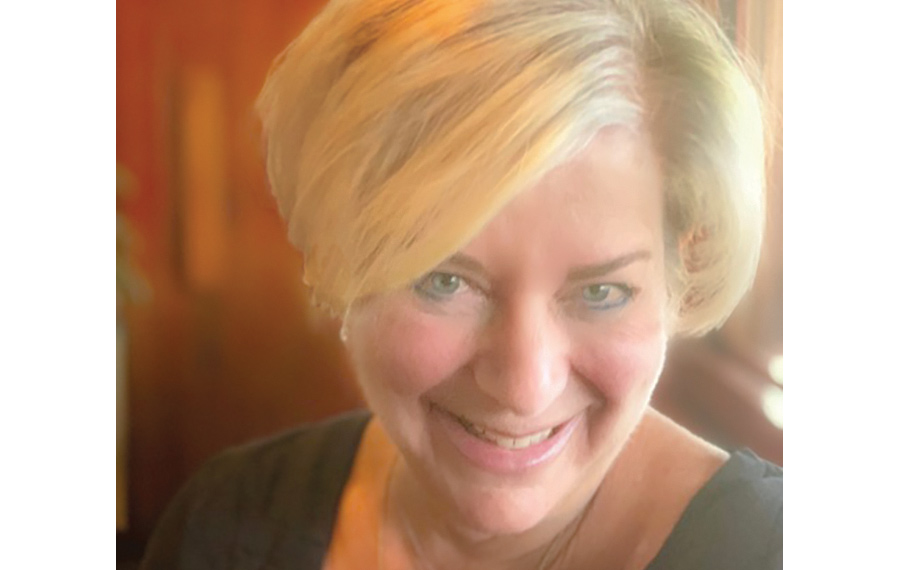
You can find Olivia Cohen-Cutler most Wednesdays at the Van Nuys County Courthouse. There, clad in her law school graduation robe, she serves the state of California as a deputy commissioner of civil marriages. She has a box of tissues in case someone cries and a box of Hershey’s Kisses to help couples start their marriages with something sweet.
But before she was helping people say “I do,” she had a 29-year career at the American Broadcasting Company (ABC), first in labor relations and business affairs, then as senior vice president of policy and standards. During her tenure, she helped to eliminate hate speech from the airwaves and to support accurate portrayals of faith on television. She also chaired the MorningStar Commission, an organization founded by Hadassah, the Women’s Zionist Organization of America, to advocate for a healthier diversity of portrayals of Jewish women in the media and entertainment industry.
Now, 3 1/2 years after retiring, she’s marrying between 12 and 15 couples a day and reflecting on the reasons people decide to legally commit to each other.
Jewish Journal: At ABC, you often decided what made it to air. What kinds of things did you prevent from airing and to what extent did your Jewish identity or experience inform your work?
Olivia Cohen-Cutler: My Jewish identity, especially in the last 16 years of my career at ABC, was my moral compass. It was part of my job to be the moral compass for the content. We said no to all manner of hate speech. We took out the stereotyping, [terms like] spic, wetback, kike, the n-word. … You have no idea how many times we heard those kinds of things and didn’t allow them on the air, because to allow them on the air would make them acceptable in a larger context. We had to find a way to say what they wanted without proliferating hate speech, trying to give writers and creative people the most leeway we could to tell their stories. I would insist upon Jewish practices being right, and we had to make sure you weren’t using the stereotype of Jews being stingy and miserly with money. We made sure things having to do with the Catholic religion were also done with the right tenets of their faith.
Part of our mission was to make sure things were accurate. Especially as a Jewish woman, and then chair of the MorningStar Commission, it was important to create strong and diverse portrayals of Jewish women, not all Jewish American Princesses and overbearing Jewish mothers. It was important [during my work at ABC] that [faith portrayals] be accurate and relatable. Most people in the U.S., the only experience they have with a Jewish person is what they see on a screen. If you live in Los Angeles or New York or Florida, you forget that.
JJ: It’s the Jewish holiday of love, Tu b’Av, so let’s talk marriage. What’s it like spending a day of your week helping people say “I do”?
“It’s so crazy that I say three minutes of words and they’re legally bound to each other. It’s so interesting to me that in this day and age, this tradition is so powerful. There’s a psychic power to the marriage ceremony that defies explanation.”
OCC: It’s so crazy that I say three minutes of words and they’re legally bound to each other. It’s so interesting to me that in this day and age, this tradition is so powerful. There’s a psychic power to the marriage ceremony that defies explanation. I have a ceremony template I tweaked to reflect things I wanted to include in addition to the required vows and pronouncements to make the ceremony a little more meaningful. They can say vows, but most don’t. Sometimes I ask, “What made you decide to get married today?” In my notebook, I write down the first name and age of both, and a paragraph about what transpired so I can remember and honor the experience.
Many couples have divorced and found they couldn’t live without each other and are remarrying. Some couples have just the two [of them] present; sometimes [there’s] a lot of people.
When I introduce myself, [couples sometimes] give me a sign that they’re happy that I’m Jewish. “Someone who understands who I am,” they’ll say. [With] one couple, one of the bride’s parents was born in Israel. At the end, everyone said “mazel tov.” I said, “Let’s get the whole mishpachah up here,” and they flipped out, [saying], “I knew we had a Cohen!” After a life of saying “no” [at ABC], I’m saying “yes” to everyone. I love the hell out of doing it. Talk about a slice of life.
JJ: You’ve been married to your husband, Andy, for 42 years. What’s your best piece of relationship advice?
OCC: Forget a lot. Look for the good and forget whatever’s sticking in your craw. It’s not about forgiveness because some things you can forgive but not forget and the forgetting enables you to make the next day clean. Everything passes, the good and the bad, unless you hang on to it. And the forgetting is how you don’t hang on to it. Life happens and the person that you’re with bears the brunt of how that life is happening to you and vice versa.
[On anniversaries] we each try to be the first to say happy anniversary. It compounds the importance of our bond, that we don’t let that go. Ritual is important to everything. We’ve gone through a lot of ups and downs. You have to hold on to the stuff that is important to get you through the times that are tough.























 More news and opinions than at a Shabbat dinner, right in your inbox.
More news and opinions than at a Shabbat dinner, right in your inbox.